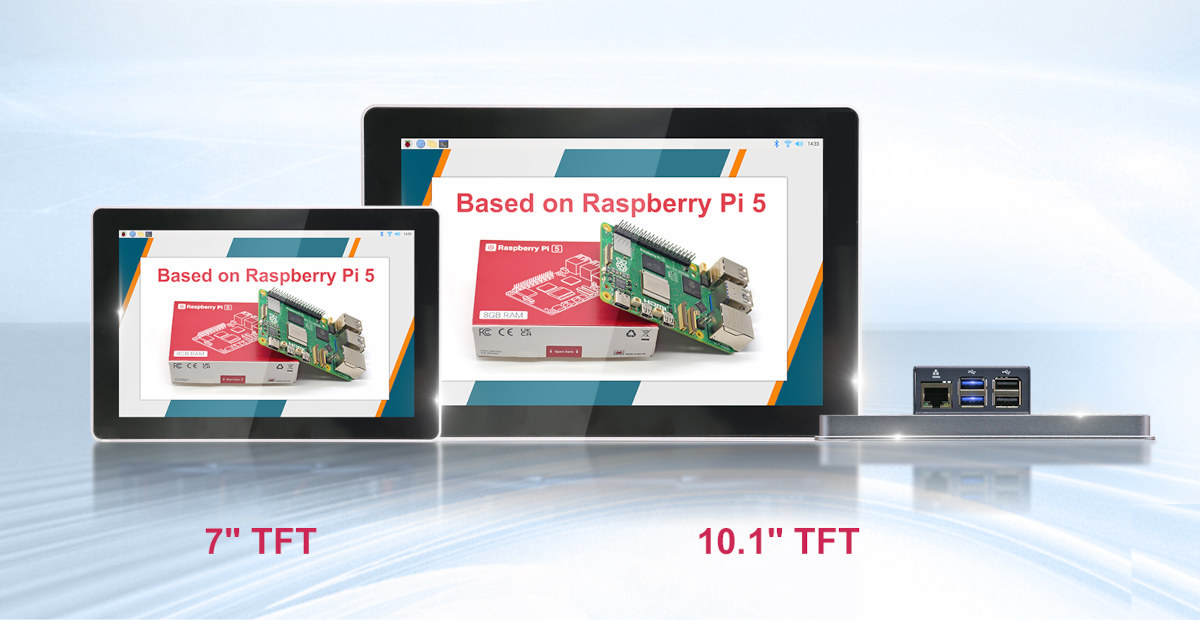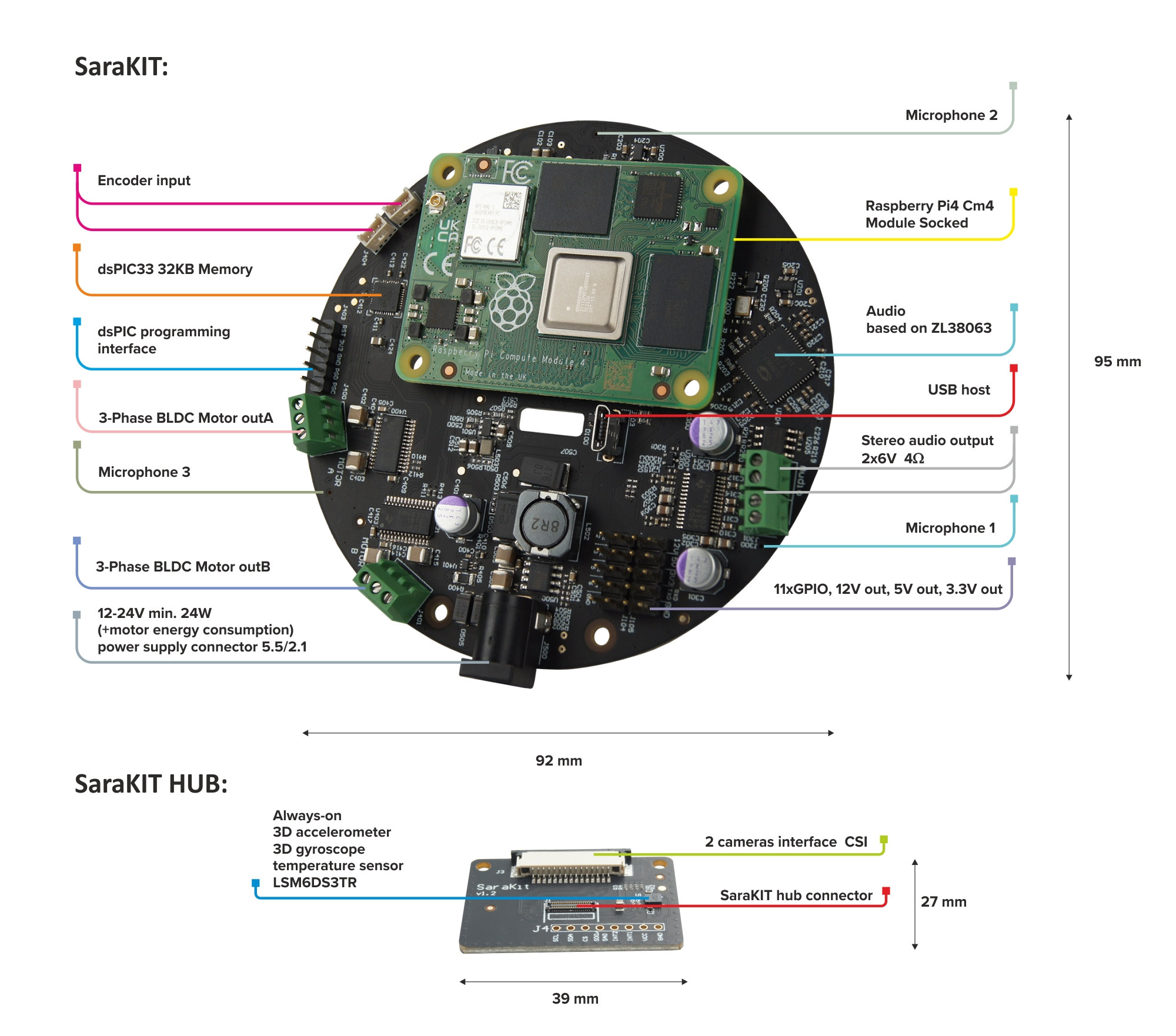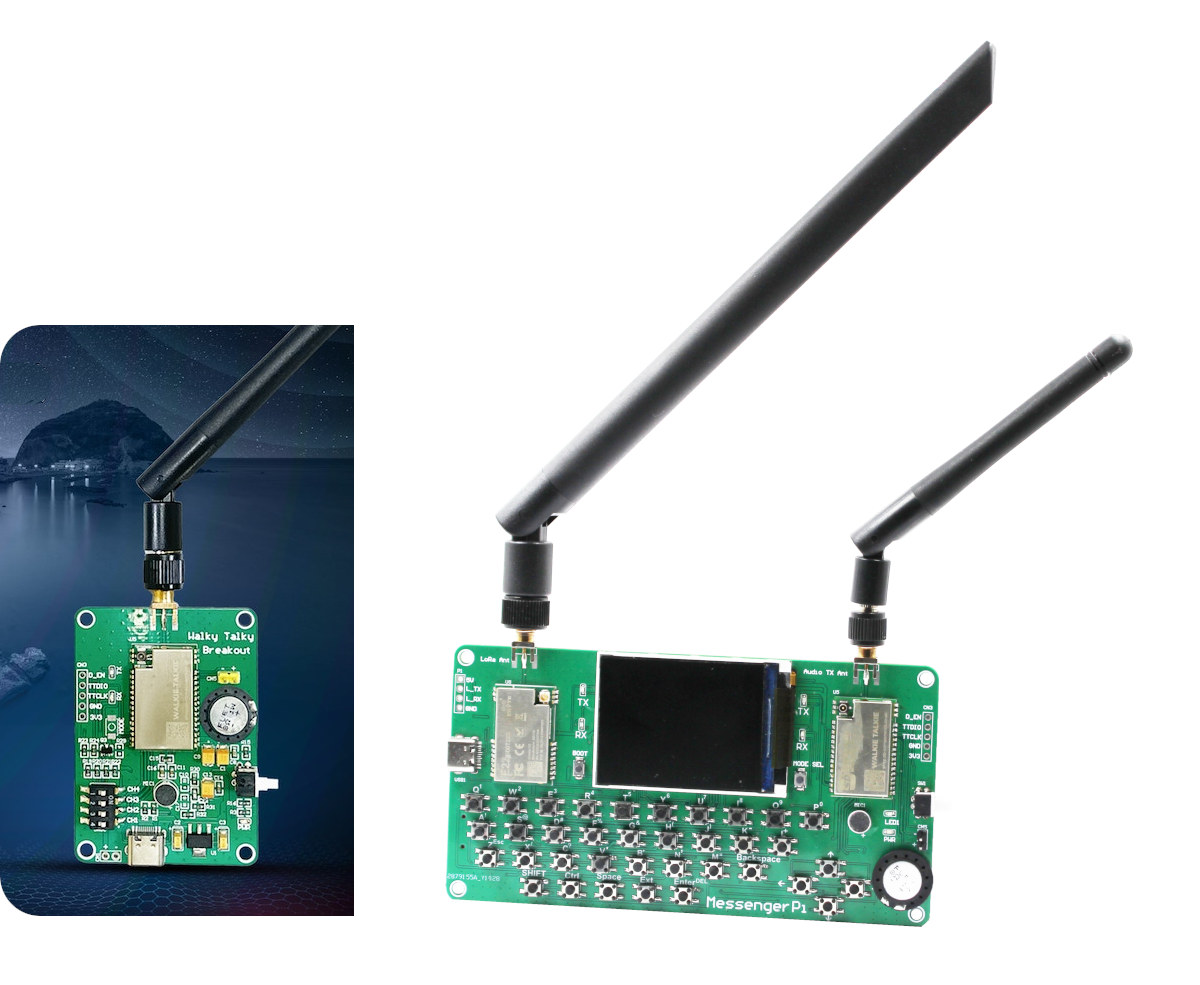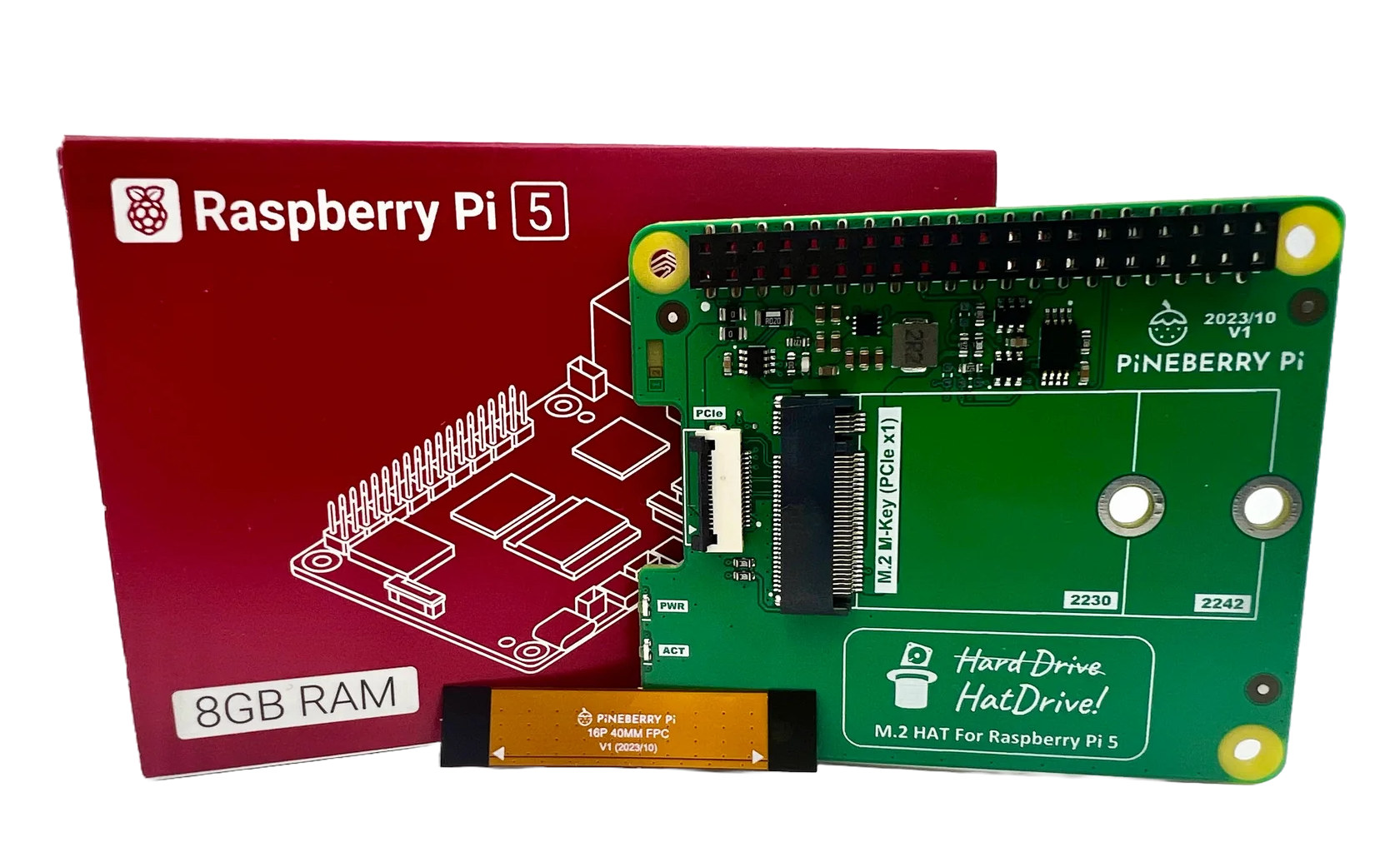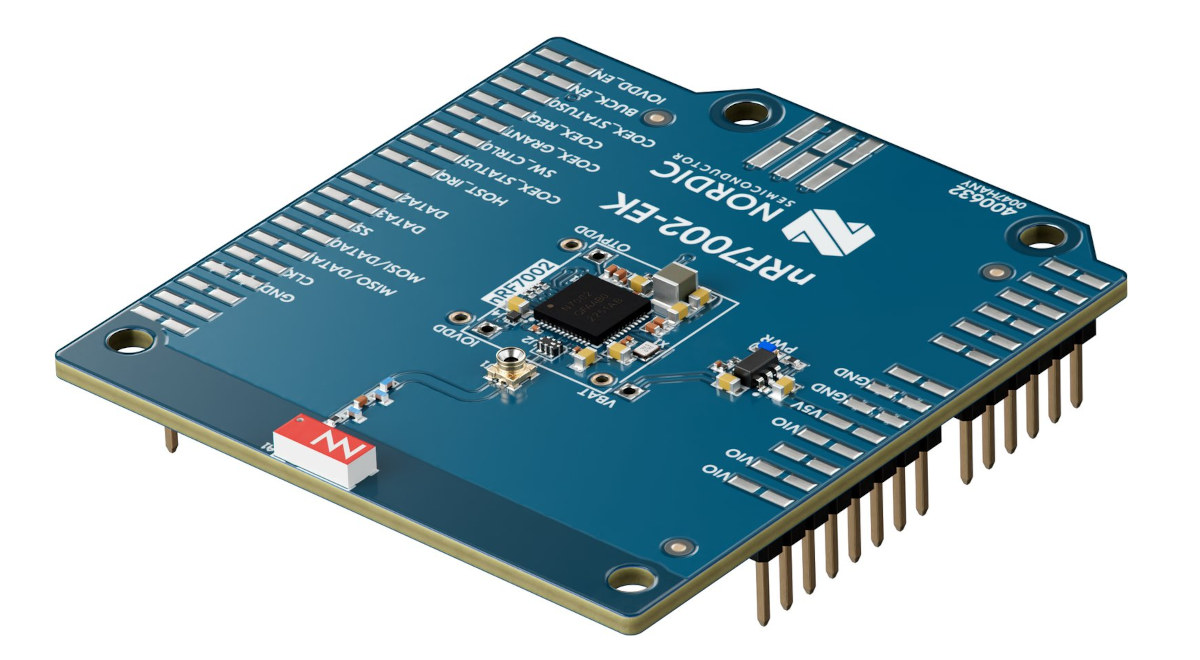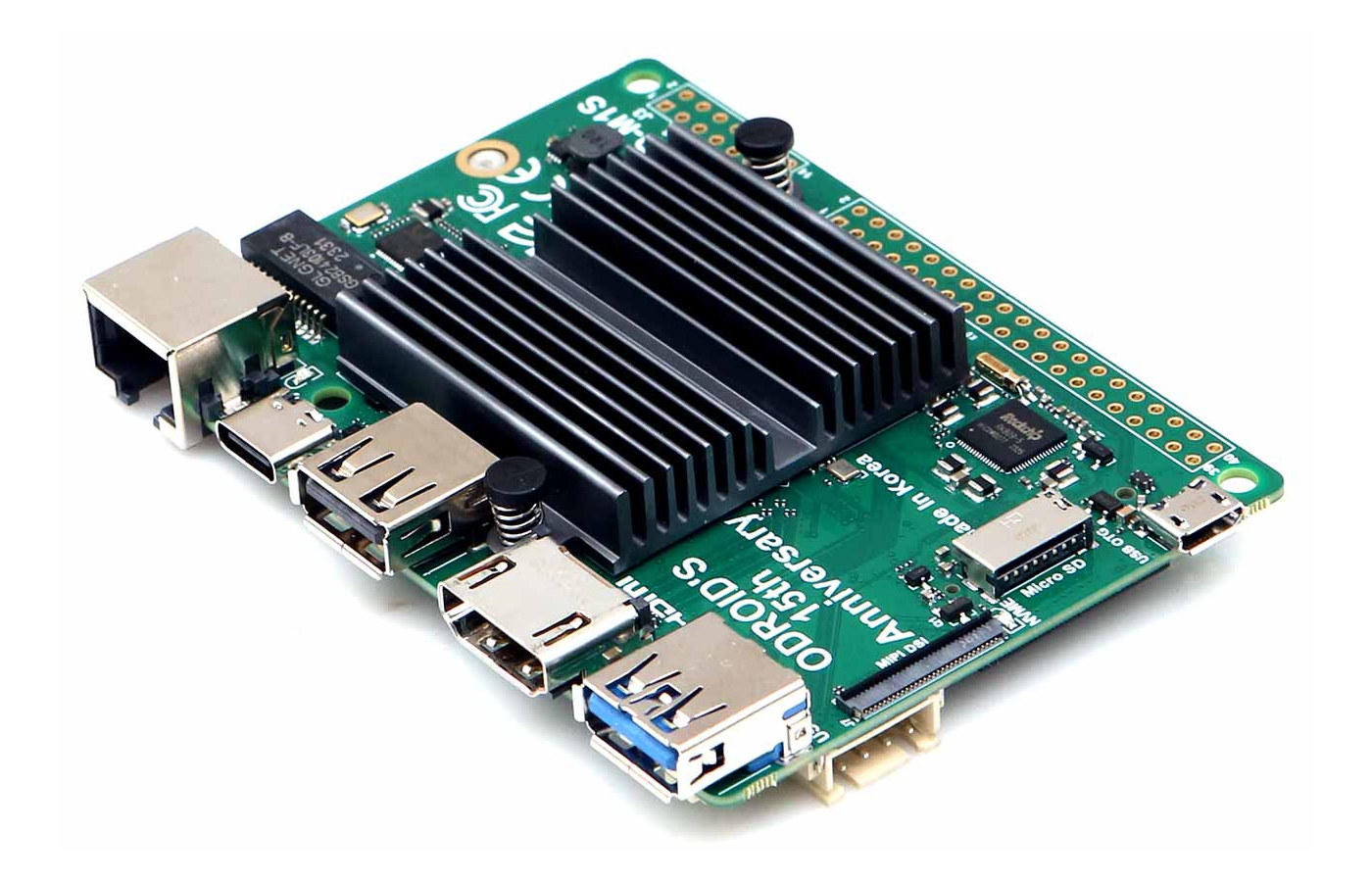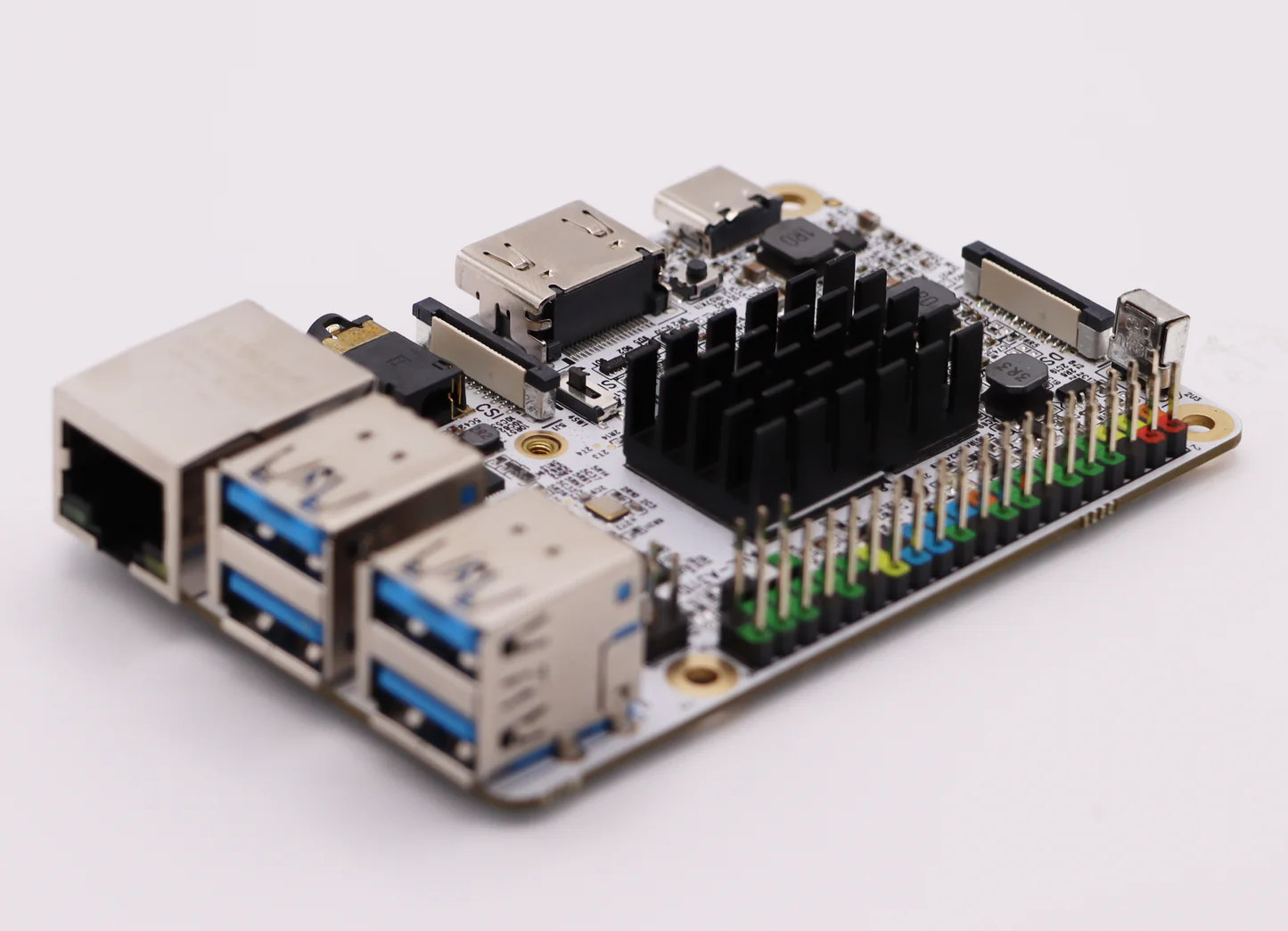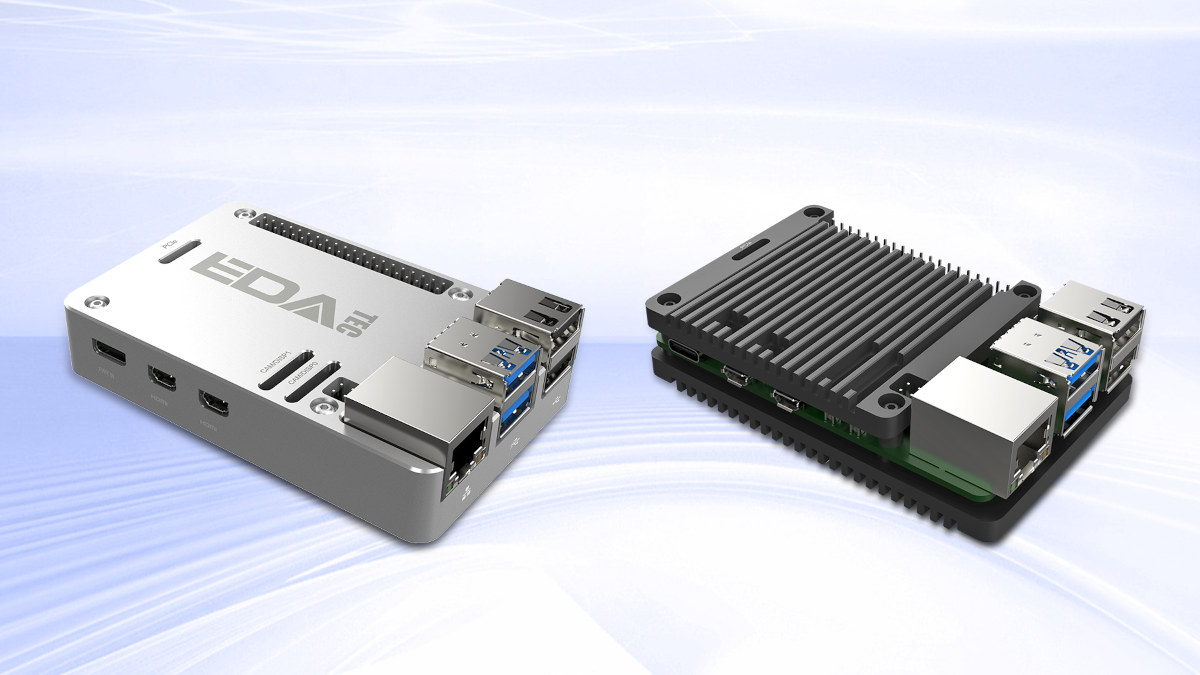After introducing several Raspberry Pi CM4-based panel PCs over the years, EDATEC has launched its first industrial panel PCs based on the Raspberry Pi 5 SBC with the HMI3010-070C and HMI3010-101C equipped respectively with a 7-inch and 10.1-inch touchscreen display. Both HMI displays expose most I/Os and features from the Raspberry Pi 5 including the two micro HDMI ports, the USB-C port for power, the four USB Type-A connectors, and the gigabit Ethernet RJ45 jack. The company also offers an 8MP front-facing camera and/or PoE as options. EDATEC HMI3010 specifications: SoC – Broadcom BCM2712 CPU – Quad-core Arm Cortex-A76 processor @ 2.4 GHz with crypto extensions, 512KB per-core L2 caches, 2MB shared L3 cache GPU – VideoCore VII GPU @ 800 MHz with support for OpenGL ES 3.1, Vulkan 1.2, 4Kp60 HEVC decoder System Memory – 4GB or 8GB LPDDR4X-4267 SDRAM Storage – Optional 32GB or 64GB MicroSD card Display […]
SaraKIT – An Raspberry Pi CM4 board with ChatGPT-based voice control, motor control, and plenty of sensors (Crowdfunding)
SaraKIT is a carrier board for the Raspberry Pi CM4 system-on-module with BLDC motor controllers and a range of sensors for robotics, support for ChatGPT-based voice control through three microphones and a ZL38063 audio chip, and two MIPI CSI connectors for cameras. The versatile board can be used for voice-controlled products, robots, home automation systems, and interfacing with smart home or office devices. The company also developed various demos such as a Smartphone-controlled LEGO RC car, a self-balancing LEGO robot, a pan-and-tilt camera, various AI demos using MediaPipe such as face tracking and object detection, as well as audio demos using ChatGPT, Alexa, and/or Google Home. SaraKIT specifications: Support system-on-modules – Raspberry Pi Compute Module 4 (CM4) with future CM5 compatibility. MCU – Microchip dsPIC33 16-bit microcontroller with 32 KB SRAM for motor control and LSM6DS3TR sensor Audio Microchip ZL38063 (previously MicroSemi) audio processor for microphone arrays. 3x Knowles SPH0655 […]
MessengerPi – A LoRa messenger and walkie-talkie based on Raspberry Pi RP2040 (Crowdfunding)
SB Components MessengerPi is a DIY messenger and walkie-talkie based on a Raspberry Pi RP2040 that relies on LoRa communication for P2P messaging over distances of up to 5 kilometers and calls up to 300 meters away. The company actually provides two boards: the MessengerPi itself for both calls and messaging with a keyboard, and the smaller “Walky Talky” board for audio communication only and without a LoRa module. Messenger Pi specifications: MCU – Raspberry Pi RP2040 dual-core Cortex-M0+ microcontroller @ 133 MHz with 264KB SRAM Storage – MicroSD card slot Wireless Ebyte E22-900T22S LoRa module (also used in the company’s LoRa HAT for Raspberry Pi) Based on the Semtech SX1262 transceiver Operates in the 850 MHz to 930 MHz band Up to 5km LoRa text messaging SB Components marked Walkie-Talkie module 16 FRS channels Tx Power – Up to 17 dBm Rx sensitivity – Up to -98dBm Audio communication […]
Raspberry Pi 5 gets an M.2 PCIe HAT – Meet PineBerry Pi HatDrive
The Raspberry Pi 5 SBC comes with a PCIe 2.1 x1 interface that has not been overly useful so far since it’s exposed through a non-standard FPC connector. Raspberry Pi Ltd is working on its own HATs to make use of the PCIe connector, but PineBerry Pi may have beaten them to it with the launch of the HatDrive M.2 HAT for Raspberry Pi 5. The HatDrive comes with an M.2 Key-M socket with a PCIe x1 interface and support for 2230 and 2242 modules, so you can install an SSD, an AI accelerator, or another compatible M.2 module. The HAT is connected through a 40mm long 16-pin FPC cable (that supports up to PCIe Gen3) as well as the 40-pin Raspberry Pi GPIO header for the I2C EEPROM required by compliant HATs, plus power supply monitoring and diagnostics, and to let users add another HAT on top if needed. […]
Nordic introduces nRF7002 EK WiFi 6 Arduino Shield, nRF7000 SSID-based Wi-Fi locationing chip
Nordic Semi has launched the nRF7002 EK based on the company’s nRF7002 dual-band WiFi 6 IoT chip and in the form of an Arduino shield that works with other Nordic development kits such as the nRF52840 DK, nRF5340 DK, and nRF9160 DK, and separately, the company launched the nRF7000 SSID-based Wi-Fi locationing chip. nRF7002 EK Earlier this year, the company launched the nRF7002 DK, a complete development kit with the nRF7002 WiFi 6 chip and the nRF5340 dual-core Arm Cortex-M33 wireless microcontroller, but for developers who already own nRF devkits, they’ve now introduced the nRF7002 EK Arduino Shield. nRF7002 EK specifications: Wireless chip – Nordic Semi nRF7002 Dual-band Wi-Fi 6 (802.11ax) WiFi station mode Target Wake Time (TWT) 20 MHz channel bandwidth Antenna – 2.4 and 5 GHz antenna for WiFi SWF port for RF measurement Host interface – SPI or QSPI interfaces Dimensions – Arduino shield form factor The […]
ODROID-M1S is a smaller, cheaper, and more efficient Rockchip RK3566 SBC with additional GPIOs
Designed for Hardkernel’s 15th anniversary, the ODROID-M1S is a smaller, cheaper ($49 and up), and more efficient single computer board compared to the ODROID-M1 single board computer introduced last year with a Rockchip RK3568 SoC. The new ODROID-M1S SBC features a Rockchip RK3566 SoC which is similar to the RK3568, but with fewer peripheral interfaces, 4GB or 8GB LPDDR4 memory, a 64GB eMMC flash solder on the board (instead of an eMMC flash connector), HDMI 2.0 and MIPI DSI video interfaces, gigabit Ethernet, a few USB ports, and two GPIO headers. It does lose a few features compared to the ODROID-M1, as its memory is clocked at a lower speed, the M.2 socket only supports PCIe 2.1, the SPI flash and SATA port are gone, and so is the MIPI CSI camera connector. The power supply has also changed from a 12V DC jack to a 5V USB-C port. ODROID-M1S […]
Libre Computer AML-A311D-CC “Alta” SBC features Amlogic A311D AI processor
Libre Computer has launched the credit card-sized “Alta” SBC, also known as AML-A311D-CC, designed for AI applications with the Amlogic A311D hexa-core Arm Cortex-A73/A53 processor equipped with a 5 TOPS AI accelerator. The board comes with 4GB LPDDR4, a 16MB SPI flash for the bootloader as well as a microSD card slot and eMMC flash module connector for storage, and offers many of the same ports as found on the Raspberry Pi 3 Model B+ with Gigabit Ethernet, four USB 3.0 ports, HDMI output, an AV jack, MIPI CSI and DSI connector, and a 40-pin GPIO header that should work with most Raspberry Pi HATs. AML-A311D-CC “Alta” specifications: SoC – Amlogic A311D CPU Hexa-core processor with 4x Arm Cortex-A73 cores @ up to 2.2 GHz and 2x Cortex A53 cores @ up to 1.8 GHz Built-in Cortex-M4 core for “always-on” processing GPU – Arm Mali-G52 MP4 GPU VPU 4K UHD […]
EDATEC launches two fanless cases for the Raspberry Pi 5 SBC
In my review of the Raspberry Pi 5 SBC I noted performance was much improved over the Raspberry Pi 4 but that the board required active cooling with the official solutions (active cooler and case with fan) for optimal performance under load and there weren’t any official fanless cases for the latest Raspberry Pi single board computer. EDATEC aims to fill that gap with two fanless cases for the Raspberry Pi 5 SBC, namely the ED-Pi5Case-B with a low-profile, but closed design, and the ED-Pi5Case-O open case with two heatsinks placed on the top and bottom of the Raspberry Pi 5. Both fanless cases are made of aluminum (CNC milled), available in silver or black, and provide easy access to all ports and most interfaces of the Raspberry Pi 5 including the GPIO header, MIPI connectors, PCIe FPC connector, and PoE header. However, the closed enclosure blocks the battery and […]


